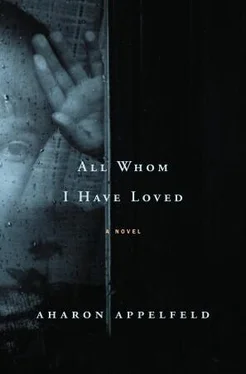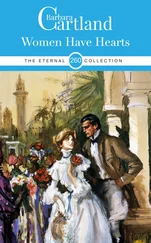Later, we sat in the tavern. Father talked about the delays and the obstacles that kept him from painting. He had never talked with me about his paintings. Now his words rolled out of his mouth like heavy stones. I was afraid to look at him. After a few drinks he relaxed, spoke with the waitress, and complimented her. The waitress confided that she would soon be leaving this backwater and going to Czernowitz. Life in the provinces depressed her; it was better in a large city — you've got cinemas and nightclubs there. Father looked at her as if to say, “I hope you won't be disappointed.”
On the way home he asked me if I had seen Mother's new friend.
“No,” I lied.
“Your mother has a boyfriend, and his name is André.” Father rolled the r with a strange emphasis. I glanced at his face and was afraid that he would go on questioning me, but he didn't. His face got tighter and tighter, and he looked like a man rushing to get somewhere. At the house he hugged me and said, “Hurry on in!” Then he immediately turned away.
I stood watching him for a long time. I was sure that at any moment he would smash the gate of the municipal park and the wooden platform where the fire-brigade band played every Sunday. I stood and waited for the noise of wood smashing, and when it didn't come, I went inside.
It was already late, and Mother hadn't arrived yet. Halina didn't ask how it went. We sat on the floor and began to play cards. Most of the time I'm lucky and I win. This time Halina won. Whenever she won, a malicious grin spread across her face, as if she were saying, “Don't I also deserve to win sometimes?”
I said nothing about what Father had told me. Whenever she said, “Your father,” it was with a wicked smile on her lips. In the end, she couldn't contain herself and said, “Your father is a good-looking man; all the girls are in love with him.” It was clear to me that she counted herself among them, but she was careful not to say it.
Later I asked her if she believed in God.
“Of course I believe,” she said, kissing the crucifix on the chain around her neck.
“Why doesn't Mother believe in God?”
“She's a teacher.”
“Teachers don't believe in God?”
“Only Jewish teachers.”
“But the bearded Jews believe in God.”
“They? Yes.”
The conversation confused me.
Mother arrived later, apologized, and said, “Our staff meeting took longer than usual.”
I did not believe her.
It rained incessantly, and we sat on the broad bed playing cards. For an instant it seemed that it would be like this forever, and I wasn't sorry. Halina was amazed by my victo-ries — when she was amazed at me she hugged me and kissed me and called me her sweetie. She was wild and her embraces could hurt, but mostly they were pleasant.
Mother was so distracted and confused that sometimes she called me Arthur, my father's name — last night she did it again. Not only were her thoughts scattered, but her movements, too. From time to time, a saucepan or a glass would slip from her hands. Yesterday she dropped a stack of plates. Seeing the pieces, she knelt down, covered her face, and said, “What's happening to me? Everything's slipping through my fingers.”
When I was just about to fall asleep, Mother asked, “How is Father?”
“He's all right.” I didn't mean what I said.
“What did you do?”
“We sat in a tavern.” I let her in on something I need not have told her.
Mother came over to me and, with a catch in her throat, said, “You mustn't go into a tavern. A tavern is a dan gerous place.”
“Why?” An impish devil egged me on.
“People get drunk in taverns,” she said, and burst into tears. She sat on the bed and cried for a long time, but I felt no pity for her. I was sure that she was not crying for Father or even for me, but for herself.
Since she had started coming back late, only to disappear at night, I have been repulsed by her. Even her clothes, which I used to love to smell, put me off — they were now saturated with a suffocating perfume, and I was glad that Halina crammed them into the chest of drawers in the morning.
“What's the matter?” Mother sometimes asked.
“Nothing,” I said without meeting her gaze.
Once I loved hearing her read aloud from a book. Even now she forced me to listen to her reading. But I didn't listen to her, I only looked at her lips and told myself, “These lips that kiss André in the dark are not clean lips. I'd far rather have Halina's kisses, because she hates her fiancé and she loves me.”
On my last outing with Halina we got as far as the Jewish orphanage, on the outskirts of the city. We stood next to the high fence for a while. Everything there looked rundown, peeling, and neglected, and the children's faces were sickly and jaundiced. Halina told me that if a child had no father or mother, he was sent there.
“But I have parents,” I hastened to say.
“True,” Halina said.
Yet I couldn't shake off the feeling that soon I would also be sent to the orphanage. I did not tell her about that feeling. I had begun to be haunted by a different fear. I dreamed that André was punishing me the way the Ruthenians punish their children. First they make them bend over, and then they strip off their pants. The children scream and try to escape, but it's useless — the belt comes down on them time after time, and the father won't stop thrashing until he draws blood.
Mother abandoned me every night so she could go to André. The darkness frightened me, but I swore to myself that I was not going to cry. I sat on the bed or stood by the window. Sometimes I armed myself with two kitchen knives, so that if the darkness invaded, I could thrust into it, wounding it on the spot. Halina had told me something else: that Jews do not marry non-Jews. When I asked her if André was Jewish, she laughed and said, “He's a goy — you know what a goy is?”
“No.”
“Whoever isn't a Jew is a goy. Not a nice word — don't use it.”
Mother, it seemed, had no idea that I was awake during the nights, that I heard her dressing and leaving stealthily and returning toward morning. She thought that I didn't know what she did at night, but I knew everything. Halina had already told me and made me swear that I wouldn't tell a soul. After they kiss, they would undress and stick to each other when they were naked. I had complete faith in what Halina said. Halina didn't lie to me like Mother did. Since she had told me this secret, it had been hard for me to speak to Mother. I had nothing but scorn for her, and I swore to myself that as soon as I grew up I would not see her face anymore.
Catastrophes come when you least expect them. While we were sitting and playing cards on the broad bed, enjoying the warmth of the stove, eating cheese pastries filled with raisins, playing, laughing, and fooling around, a man's shadow appeared at the entrance of the house. He knocked on the door. At first it seemed that this had to be someone who was lost and found his way here by accident, but the shadow stayed stuck to the door and the fist continued to rap on it.
“Who's there?” asked Halina.
The man said his name and Halina opened the door. As it turned out, it was a soldier, Halina's fiancé. The fiancé was not happy and did not embrace her but immediately began to ask her questions in a loud voice. Halina answered but must have become confused. The fiancé became angry and raised his voice. Halina rallied and spoke in a flood of words. He interrupted her and silenced her. Halina ticked off on her fingers everything that she had done in the past few days, but he shouted, “Shut up, you liar!”
“You're the liar!” she burst out to his face. “You've got another woman in the village!”
Читать дальше












